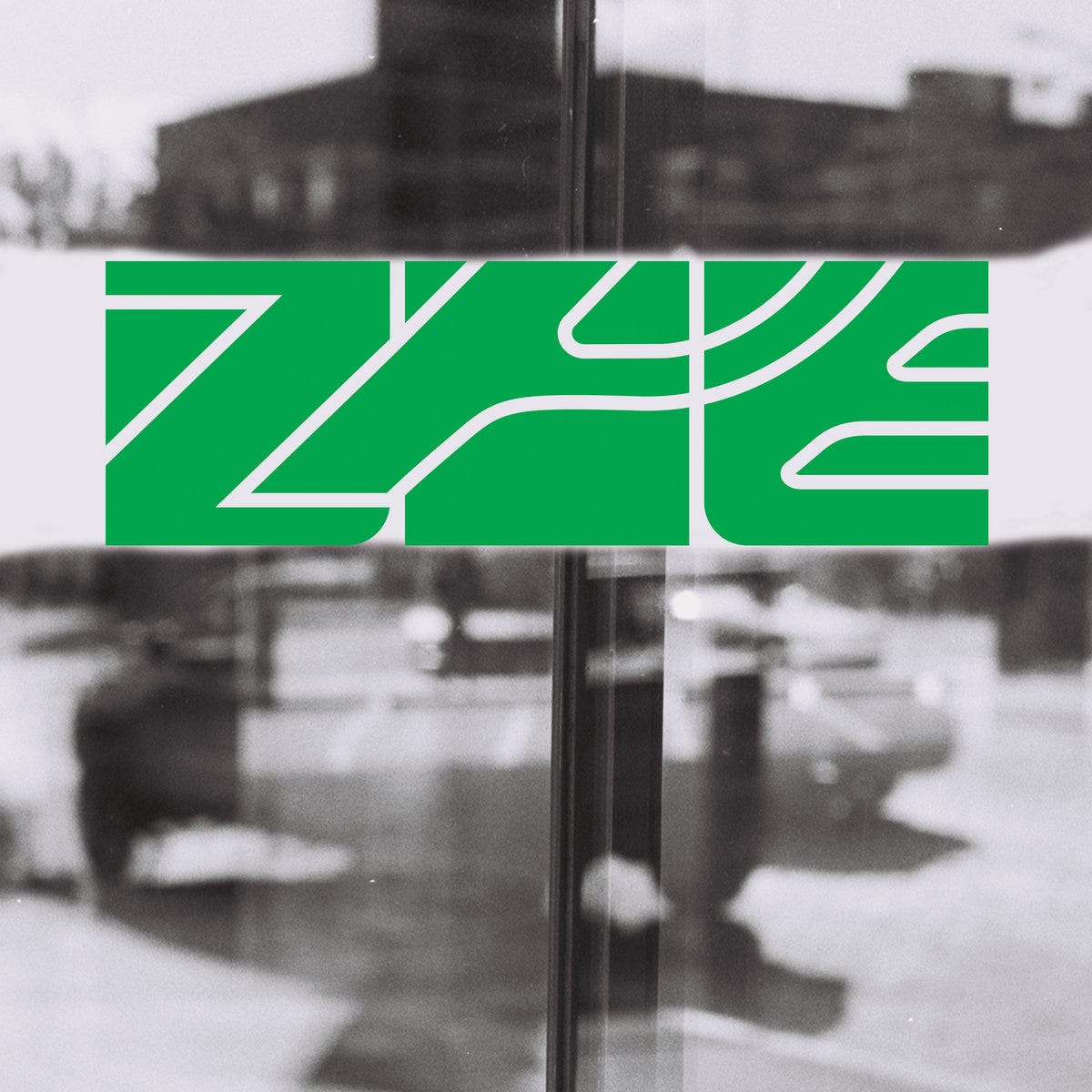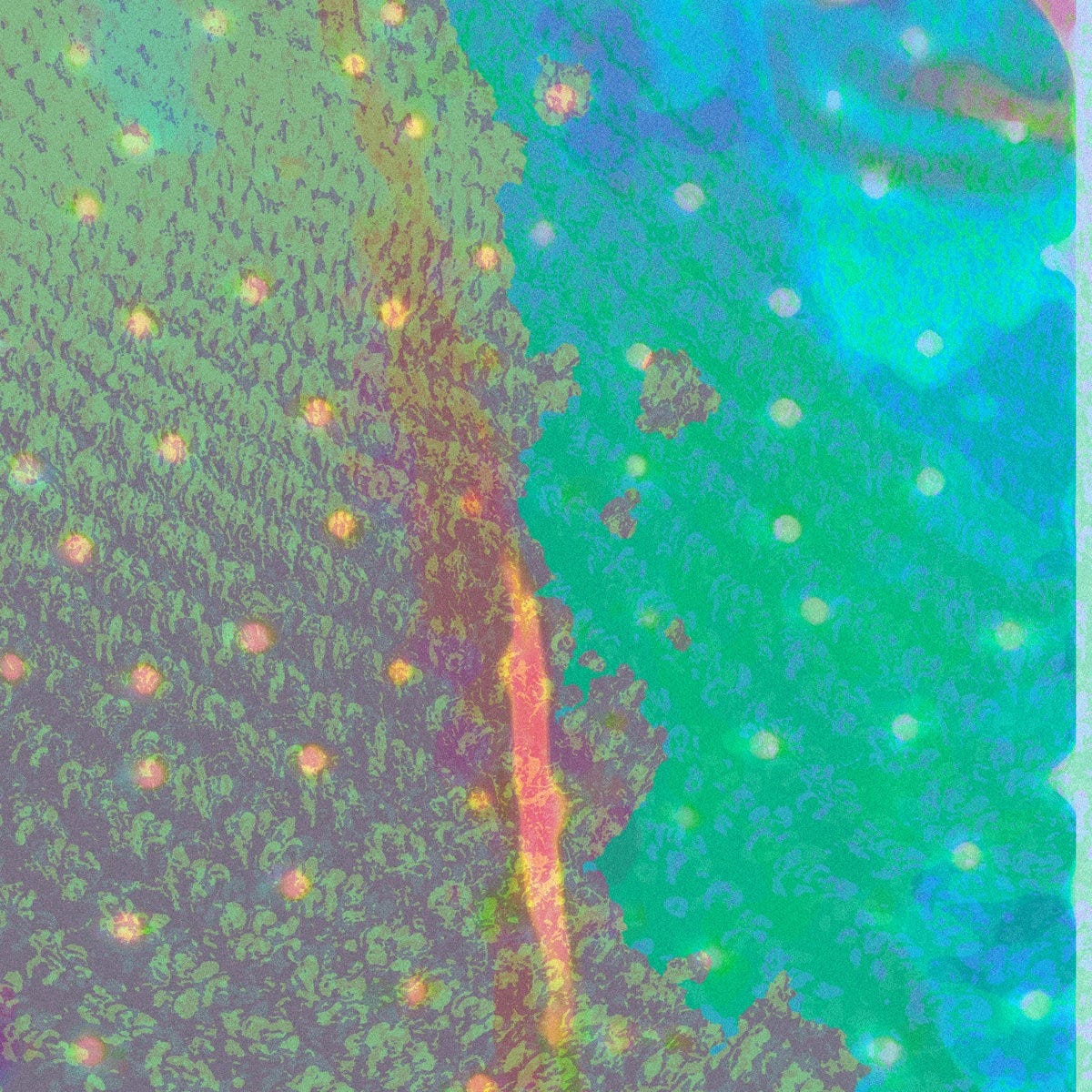Know Who You Are At Every Age
Zero Point Energy, Gulfer, nostalgia festivals, and more music recommendations from May
I wasn’t looking for a theme for this month’s newsletter, but somehow it found me.
A few weeks ago I turned 39, which is a weird age to be. Turning 30 freaked me out because it felt like a clear delineation between young and not young. And while 40 is certainly older than 30, I don’t find myself clinging to the last shreds of youth the way I did a decade ago. In my life getting older has meant getting happier, but it still puts me in a weird headspace to come up against these milestones.
So it was, with a brain consumed by aging, mortality, and nostalgia, that I tackled this month’s new releases and attended a music festival that drew some inherent comparisons to the person I was a lifetime ago. How could I not see the connections? Let’s talk about what it means to connect with music—and try to follow music trends—as you get older.
Before we jump in, I wanted to take a second to recommend Ekphrastic Trek, a blog about the trials and tribulations of the journey toward mental health told through the lens of Star Trek: The Next Generation.
Writer/poet/playwright Samuel Collins Hicks takes the long and eminently more entertaining road to self-discovery, investigating the most important moments of his own life through the pop culture that shaped him. It’s a truly delightful read, whether you’re a die-hard trekker (that’s the term, yes?) or a space noob like me, and I think readers of this newsletter will thoroughly enjoy it!
This month I attended my sole music festival for the year, and first fest in two years. Just Like Heaven is an annual early aughts blog rock nostalgia fest held outside the Rose Bowl in Pasadena, California. This year’s headliners included the Postal Service, Phoenix, Passion Pit, Death Cab For Cutie, Miike Snow, and much, much more indie sleaze.
While the festival doesn’t have a stated date range, every year seems to represent a different specific era of indie rock. The last time I attended, bands like The Shins and Modest Mouse brought to mind what I’ll call the Bait Shop era. This year’s lineup sent me back to 2009, my first year living in New York out of college. I have a distinct memory of walking into the Urban Outfitters down the street from Tisch to buy my first pair of skinny jeans and using my iPhone 1.0 to shazam a Miike Snow song. That sentence makes me feel like Grandpa Simpson, but it’s a true story. At one point during Just Like Heaven, I was meeting some friends at the bar and was situated in such a way that I could hear “Lisztomania” being played on one stage and “Animal” on the other, which is what it must have felt like to be inside my iPod back in the day.
Live performances have been in a weird place since the end of COVID lockdowns, and nostalgia festivals have exploded in a landscape where it’s difficult for many artists to make money off their own tours. Goldenvoice, the company that puts on Just Like Heaven as well as Coachella, also has Cruel World, a festival of 80s post-punk and new wave, and No Values for 80s and 90s punk and ska. Lovers and Friends promised to bring together a who’s who of 90s pop and R&B before being canceled due to high winds. And this October will bring not one but two throwback emo festivals to Las Vegas: the pop-punk leaning When We Were Young and the thrid-wave celebrating Best Friends Forever.
Generally, I am pro-festival and don’t feel the need to take up too much space explaining that position. I like to drink overpriced beer in the sunshine and listen to my favorite music. That’s something I think is good. I do often wonder how the artists feel about being slotted into these very narrow categories, lumped together with a scene that was all the rage ten, twenty, thirty years ago. For a band like the Postal Service who released one album in 2003, it’s perfect. But how do you feel if you’re, say, Two Door Cinema Club, a band that is still actively releasing new music? Is there a suggestion that your best years and best music are behind you?
Some of the artists poked fun at the oldheads. Molly Rankin of Alvvays, easily the youngest band of the day, claimed she was having panic-inducing flashbacks to school dances (idea for future newsletter: are Canada’s public schools exposing kids to indie sleaze too young?). But most of the bands seemed genuinely happy to be there. Thomas Mars of Phoenix noted that they don’t have high school reunions in France, but imagined this must be what it’s like, watching all your old friends get together and marveling at how far they’ve come.
The other criticism of nostalgia festivals—or any situation where the listener is enjoying the experience of reminiscing rather than the creation of something new—is that it suggests a lack of forward momentum. Almost every artist starts out trying to say something, to push boundaries, to reinvent. If you’re very lucky, you get a hit song out of that process. Much has been written about the trap of success, connecting with an audience only to become immortalized for one thing, unable to move on artistically. And there’s really no good way to deal with that. We’ve all heard the jokes about audiences made to suffer through a band playing new material live when all we want are the hits. But, to fully accept yourself as a nostalgia act can seem like a small death. It’s admitting you’ll never top what you’ve done in the past, that you’re content to give the people what they want at the cost of your own creative integrity. It is to cease being an artist and start being an entertainer, a far less noble calling.
One of the highlights of Just Like Heaven was the return of Passion Pit. Their 2009 album Manners launched them to indie dance pop stardom, and they actually strung together a pretty solid discography, compared to most of their peers. Along the way, frontman Michael Angelakos spoke candidly about his struggles with his mental health, including his bipolar diagnosis and a stint on suicide watch. These issues led the band to cancel a tour for their much-hyped second album. That record ended up another success, and the band went back on the road, but it didn’t take long for the moment to pass them by. Passion Pit hasn’t released new music since 2017 and doesn’t play live all that much anymore. In fact, Just Like Heaven was only their second live outing since 2019. Despite this, they sounded amazing, and Angelakos commanded the stage like no time had passed at all. Toward the end of their set, Angelakos admitted that he had been “scared shitless” to perform the show, but that the band was determined to get back to playing live regularly. There were no new songs in the set, and like much of the festival, the enjoyment came from a bunch of elder millennials vibing to the sounds of their glory days. But it didn’t just feel like pure nostalgia. It was a reminder of the restorative power of music. The songs sounded the same as they did in 2009, but the act of playing them took on a greater meaning. It signaled triumph and resilience and—against all odds—progress.
Zero Point Energy
Tilted Planet
In 2016, an Atlanta post-punk group called Warehouse disbanded to little fanfare. After striking out on their own, two former members—singers and guitarists Genesis Edenfield and Ben Jackson—found themselves in Brooklyn looking to collaborate again. Their new project Zero Point Energy just released their debut album Tilted Planet, and it’s the sound of coming to terms with life’s changes when you have a good buddy to lean on and help you make sense of them.
Edenfield and Jackson both sing and play guitar on the album, but it’s the former’s vocals and the latter’s riffs that give the record its punch. Edenfield snarls, rasps, and growls his way through these songs while Jackson provides a layer of guitar that takes influence from pop punk and emo, but ultimately feels more jangly and playful than those genres. The effect is propulsive, and the music has the energy of driving with all the windows rolled down on a sunny day. It’s full speed ahead with nowhere in particular to go, just driving for the sake of it.
Which is not to say the songwriting on this album is fluffy or inconsequential. These are songs about rolling with the punches, taking some licks, and finding your footing when it all blows over. On “Over My Head,” Edenfield sings about losing yourself in a relationship when you’ve overidealized your partner. Jackson’s guitars provide a sunny, leaf-dappled counterpoint as if looking back on the events of the song as old home movies. Many of the album’s lyrics are as straightforward as diary entries, and they capture small moments in life that leave lasting impressions. On “Disintegration,” Edenfield sings, “I spent so much time trying not to relive the moment when you call me to the house, sit me on the bed, and tell me what you did.” The source of this moment can probably be inferred from the context of the lyrics, but it’s the moment itself that’s front and center here, like a photograph that remains even after the memory of the time is long forgotten.
The album’s lyrical and musical highlight “Closer to You” was inspired by Edenfield’s partner coming out to him, which in turn led him to coming out himself. The song has two verses, detailing the two events, so that the advice Edenfield gives his partner in the first leads him to his own realization in the second. “Take all your time but don’t push it away,” he counsels, adding, “Know who you are at every age.” Edenfield has called the song “a trans anthem,” noting that he hopes young trans people can hear it and recognize that it’s for them. After the two verses, the song melds into a haze of guitar solos which swirl tighter and tighter until exploding into ascending riffs. Edenfield credits Jackson for providing the musical lift saying, “he put music to the moment after the lyrics are done and the only thing left is action.” It’s a testament to the power of collaboration that Edenfield’s incredibly personal song only becomes stronger and more effective by finding another artist to share it with. Tilted Planet is powered by friendship, and it’s probably my favorite rock record of the year.
In February, Montreal emo band Gulfer released their fourth full-length, and their first record that finally reached my ears, Third Wind. The album has been in steady rotation for me since then, a perfect snack for any time I’m craving shiny, catchy tunes infused with intense emotion, which is fairly often. The reason I’m just now writing about this album is because last month Gulfer announced they were breaking up.
It’s a bittersweet thing to discover a great band right as they’re taking their last bow. When I was a sophomore in high school, my father became concerned that I was spending all of my money on CDs. He was not wrong. His solution was to sign me up for a revolutionary service called the Columbia House Music Club that offered a dozen CDs of the buyer’s choice for just a penny, before locking members into cruel contracts, forcing them to pay full price for the latest Santana album or whatever. It ended up being a terrible deal for my poor well-meaning father, but a fantastic opportunity for me to dip my toe into the strange, murky waters of the “indie rock” phenomenon I’d been hearing so much about. My first twelve Columbia House selections included records by Beck, Radiohead, Built to Spill, Yo La Tengo, and the newest release from Pavement, Terror Twilight. That album would go on to become the consensus worst of the band’s career, but I didn’t know that at the time, and found myself absolutely stupefied by the shimmering guitars, cryptic lyrics, and quirky melodies. I quickly decided that Pavement was my new favorite band. About a month or two later, I found out that they had actually broken up before I even listened to them for the first time.
Gulfer is probably not going to become my new favorite band because I am not 15 and they are not Pavement. But they are a shining example of a genre that has become very important to me, which I like to call Old Man Emo. It is my firm belief that emo music sounds best before you’re 21 or after you’re 35. Once you cross the Rubicon into Old Man Emo, you appreciate the genre differently. It is of course tied to memories of your salad days, to experiencing the sheer emotional impact of music before you’re able to properly process the emotions themselves. But you’re older and wiser now, and unlike pop-punk or other youthful rock subgenre expressions, there is a depth to the music that you’re able to appreciate in a way you couldn’t before.
Album opener “Clean” whirs to life like a toy robot being wound up, then launches into a rip-roaring story about a put-upon office worker who takes a late-night drive and may or may not do something unspeakable. “Prove” has those good good angular math rock guitars, and lyrics like, “I stoppеd talking cause I had nothing to prove.” The album’s—and, I suppose, the band’s—last track, “Talk All Night” is the one that won me over the first time I listened to the album in full. One of those songs that makes you reconsider what came before and see the bigger picture. It’s got the crunchy guitars, screamed melodies, and teenage suburban fantasy lyrics of bands like The Promise Ring and The Get Up Kids that spoke to me in my youth. Listening to this kind of music now is like looking back on the person I was, who wanted so badly to know where they were going, and wishing I could tell him to chill the crap out. Because there’s a lot about his life he’s gonna miss when it’s gone.
So, farewell Gulfer. I want to say “I hardly knew you,” but that’s not really true. You left me with at least one terrific album, and an entire discography to explore. The truth is, I know you as well as I could know anyone.
To hear music from those albums and more from the month of May, check out the Adult Contemporary playlist on Spotify. I update this playlist monthly, so save it now for all your summer activities: strolling on the beach, chilling in the park, staring at your bedroom wall and contemplating your own inevitable mortality. You know, summer shit!
Here are the albums I’m most excited to hear in June:
Raveena Where the Butterflies Go in the Rain. This is Raveena’s third full-length of silky smooth R&B, and coming only a month after being announced, and with just two singles preceding it, it basically counts as a surprise release in 2024.
Good Looks Lived Here For A While. The Lockhart, TX band describe themselves as “socialist heartland rock,” and have recorded an album of backyard bangers decrying the gentrification of Austin, so this may well be my Album of the Summer.
Mabe Fratti Sentir Que No Sabes. Guatemalan avant-garde singer and cellist Mabe Fratti’s last album Vidrio was a fascinating record that pushed jazz, folk, and pop to their breaking point, and quickly heralded her as someone who will have my attention any time she puts out something new.
That’s it for May. See you in June! XOXOX





